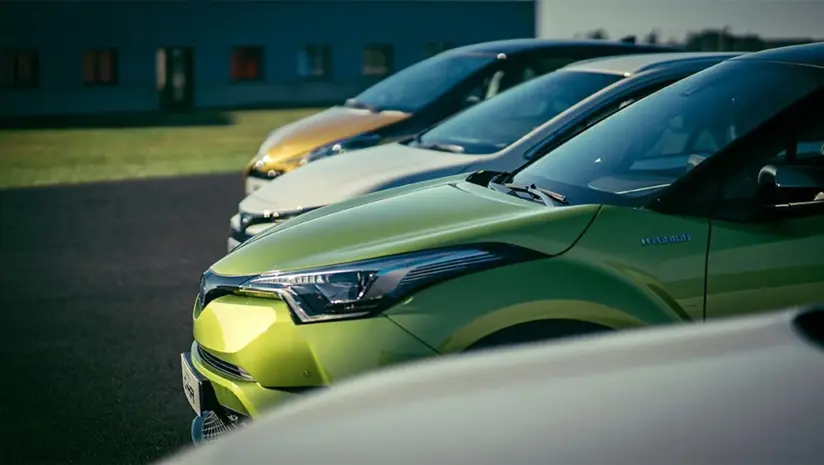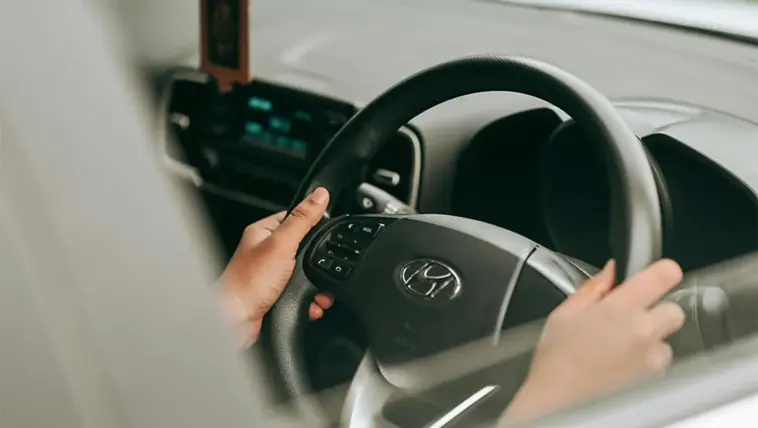Kiwis don’t tend to haggle much. We generally don’t like it, and our society is structured in such a way that it’s difficult to imagine haggling over the price of, say, your lunch, a movie ticket or a day’s parking at the airport. But there are times when haggling and negotiating can save you plenty of cash.
Next time you’re buying a new fridge or other appliance, don’t be too shy to ask if that’s the best price the store can do. You might be amazed at how quickly the salesperson can knock off a few dollars. Sometimes more.

And then there’s buying a car. Without a doubt, this is your greatest opportunity to shine as a negotiator. Buying a brand new car can involve negotiating, but the real haggling comes into play when you’re buying second-hand.
Frankly, neither car dealers, private sellers, nor even most buyers expect to pay the full asking price on a used car. That’s just how the market has developed, but it remains that it’s a great way to save yourself a few bucks and maybe even a few thousand bucks in the right situation.

Okay, we’ve decided that haggling for a used car is acceptable, but when you tackle the issue of how much can you negotiate on a used car there are some considerations.
Toyotas, for instance, are often snapped up within hours of being offered for sale. So you won’t gain much of a discount in that case. Which is another way of saying it all depends on the the seller and the car itself.
So let’s break it down into the two main ways of buying a used car and our favourite used car price negotiation tips. Knowing how to negotiate car price discounts won’t make buying a second hand car any less painful, but it can leave more cash in your pocket.
So here are our top tips for buying a used car from a dealer:
Dealers are always more expensive than private sellers. That’s for a variety of reasons including the fact that a dealer has to make his or her living from selling cars, as well as the fact that they must offer more buyer protection than a private seller.
That includes things like guaranteeing the car in question is not stolen, providing a roadworthy where necessary and even offering a warranty on used passenger cars.
Here's the reality: Used-car dealers expect you to want to negotiate. Even if it doesn’t spiral downwards into some kind of Monty Python haggling farce, there’s still often a bit of fat built into the price to account for this. That means you drive away in your new used car thinking you got a deal and the dealer still feeds their family.
But here’s the other reality: Used-car dealers are experts at this game. Just as the house always wins in the case of a casino, a used-car dealer will never sell you a car for less than they need to.
Oh sure, they’ll try all sorts of psychological stuff on you like disappearing for a minute or two to 'check with the boss if they can go that low', or maybe make you feel guilty for squeezing them so hard, but ultimately, there’s a bottom-dollar price for that car and it’s your job to get as close to that figure as possible.
Don’t be afraid to go back and forth and don’t think you’ll offend them by aiming low. Trust us, they’ve heard it all before. Anybody without a thick skin doesn’t last long selling used cars at a dealership.
Knowing exactly what you’re looking at might help, too. Make sure that if you’re paying the price for the top-spec model, you’re getting that exact car. New cars are often sold with add-ons that make them appear like the more expensive model, but aren’t.
Don’t get caught out by that one, as the badge on the boot lid doesn’t always tell the whole story. A mid-spec car with the sunroof option is not the same as the top-shelf model with the same sunroof as standard.
Ultimately, buying a car from a licensed dealer is always going to be a case of the amateur (you) versus the professional (the dealer). So the trick becomes one of calling in your own experts.
Don’t be afraid to make any sale conditional on an independent inspection either by a specialist in that make and model, usually your own mechanic or your state motoring club. If the dealer doesn’t want to play ball, there’s probably a mechanical reason for that.
Don’t however, be fooled into thinking the dealer’s own mechanical inspection will be either thorough or completely accurate. We’re not saying all car dealers are dodgy (far from it) but you will still find the odd one prepared to ignore mechanical faults in order to unload the car to somebody (you, again).
But always keep in mind, no matter how well you think the deal is going, a car dealer will always have more knowledge of how to extract dollars from buyers, than the average buyer will ever have knowledge of how to negotiate car price discounts.
Trust us, a seasoned car dealer can smell a cashed up second-hand car buyer from around the corner.
So much for second-hand car specialists, what about new car dealerships that sell their trade ins as used cars? Can you negotiate used car prices at a dealership and how much will dealers come down on a used car?
The first answer is absolutely. Just like new cars, most traditional dealerships will always be open to offers on a used car taking up space on their lot. If they don’t sell it through the dealership, it’ll be wholesaled for a lot less money.
As for how much they’ll negotiate, it’ll come down to the same factors that used car yards and private sellers deal with; the quality of the car, its desirability, rarity and how many kilometres it has covered.
And now, what if you’re looking to buy a used car from a private seller?
Here is perhaps the most important thing to know about buying a second-hand car from a private seller: For every licensed car dealer prepared to cut a few corners or paper over the odd fault, there are probably 10 private sellers willing to commit the same – or worse - deceptions.
And that’s mainly because there are no meaningful legal ramifications. A licensed dealer will be at the mercy of consumer law should they be caught pulling a swift one. But a private seller will just claim ignorance and leave you holding the oil-leaking, rusty, rattling baby and a big repair bill. And a warranty from a private seller? Don’t be silly.
Negotiating a lower price than the asking price relies largely on a battle of the wills (yours and theirs). So step one is make sure you don’t fail the attitude test. Strolling in to the seller’s front yard and picking the car to bits in front of them is a great way to have the seller on the back foot from the word go.
Sure, you need to identify the flaws and problems, but pointing them out to the owner is not going to help your cause. You actually want the seller on your side (strange though that sounds) as amicable dealings often generate the best results.
Meantime, you will need to use the car’s flaws as bargaining chips during the negotiation, but simply condemning the car on the spot as a means of dropping the price is grounds for being sent packing.
Also, if the seller has listed the car’s price as firm or only slightly negotiable, don’t bother making an absurdly low offer or getting upset about being told no if you do.
Like buying from a dealer, you need to know exactly what you’re looking at and the problem areas you need to double check. Different cars have different trouble-spots and you need to know what they are and how to check them accurately.
A second-hand car will also tell you a lot about its condition by digging into its past. In fact, knowing what to ask when buying a used car is almost as important as inspecting the car itself.
Does the seller know the car’s history? How long have they owned the car? How many kilometres has it done per year? What type of driving has it done? And then check the service history. If there isn’t one, it’s time to ask some more hard questions.
Finally, don’t take any private seller’s word for the car not being encumbered (finance owing on it that could become your problem if they stop making the monthly repayments).
Nor should you trust that the car is not stolen and is, in fact, theirs to sell. There are numerous websites and services you can call on to verify a car’s identity, usually simply by providing the VIN. Definitely worth the bother and the (sometimes) small cost.
Which is great because the other question we hear is; is there a cooling-off period when buying a used car privately? And the answer is a very short one: No. Once the money is in the seller’s hands, you’re very unlikely to seen any of it ever again, so you need to make sure the deal and the car are right for you.
And one more tip for the online generation out there. Rather than spotting an online advert and sending a text message with a silly-low offer, why not pick up the phone and actually talk to the owner. It helps identify you as a serious buyer.
Oh, and if you agree on a time and place to meet up and look at the car, be respectful enough to either turn up or give as much notice as you can if you can’t make it. Talk to most people who have sold a car recently, and it soon emerges that the no-shows and tyre kickers out there are the worst part of the whole experience. Don’t be that guy or gal.
- David Morley, contributing journalist.





